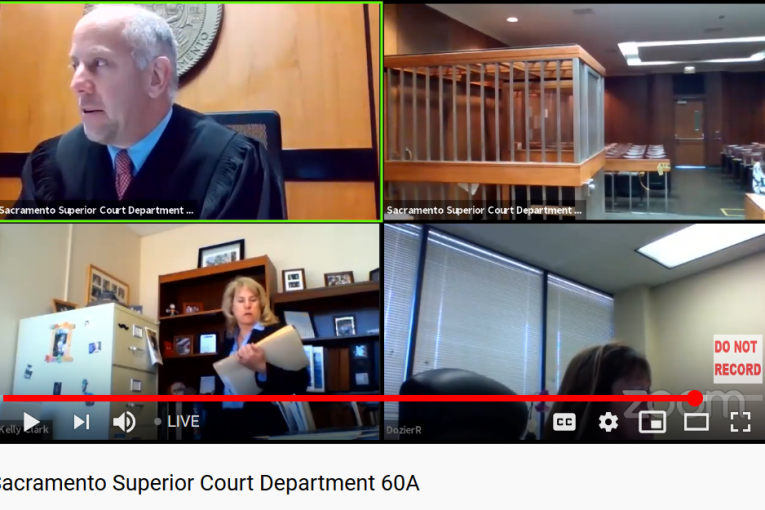

By Nancy Martinez
What will be the long-lasting effects of COVID-19 on the national criminal justice system?
The COVID-19 pandemic has momentarily transformed California’s criminal justice system; some argue that this change is exactly what is needed for the 21st century, while others argue that it violates the right to confront one’s accuser.
As of April 1, the Sacramento Superior Court began live-streaming some criminal court proceedings through the live stream application, Zoom. The San Francisco Superior Court will also begin live streaming some proceedings. These decisions come after several published statements on the court’s websites declaring court closures until mid-April.
Court closures have resulted in extended periods for motions to be filed. While this is currently affecting the timeframe individuals are kept in jail, this has also initially affected civil jury trials, such as eviction trials. Dean Preston, Supervisor of San Francisco’s Fifth District, discussed via a thread of tweets on March 14 that the San Francisco Superior Court had exempted the continuation of eviction cases while all other civil jury tries were continued for 90 days.
Individuals who were in the process of being evicted from their homes were required to present themselves in court to defend their case.
While these orders have changed since March 14, as the pandemic worsens, this clearly shows the impact COVID-19 has had on court trials and the responses courts have had to unprecedented change.
To avoid further delaying court matters, multiple California courts have endorsed the use of conferencing tools such as Zoom to live stream court hearings.
Though some technological obstacles may arise during these streams, the Superior Court of Sacramento has found the technique to be successful and plans on expanding “technology-based solutions” to other areas, as reported in a news release on April 3.
COVID-19 has enforced a sudden change that some believe was already coming. As the turn of the 21st century brought an explosion of technological advances, the criminal justice system and its processes remained unchanged.
The criminal justice system has seen little change in the traditional trial process. In the last 20 years, efficiency may have increased as technology has allowed for a swifter court process. However, drastic changes have been surprisingly unseen.
As many people online predict that the world will never return to the ways before COVID-19, it is reasonable to conclude that the criminal justice system will not be exempted from these predictions. This sudden heavy reliance on technology has begun instilling an idea of an electronic future that does not require in-person interactions.
The success of new technological techniques will allow future courts to be able to consider other methods that can alleviate the inconveniences of crowded courtrooms, trauma on witnesses from facing defendants, and communication struggles.
On the other hand, a remote court system can affect the benefits of in-person interactions that include a defendant’s right to confront their accuser, accurate and clear communication between the defendant and their attorney, and attention retention of all members of the court.
Despite the advantages and disadvantages of a remotely-sustained court system, the question of whether the criminal justice system will remain unchanged after COVID-19 seems insignificant after considering the reactions courts have had to the introduction of streaming services.
To deny a predicted long-lasting effect of COVID-19 on the criminal justice system is to deny the development of a rapidly changing world at the hands of technology. Society is now comprehending how to adjust a justice system that is struggling to defend the human rights of individuals affected by the justice system.
In the coming months, the long-lasting effects of an electronic court system will be determined as courts across the United States devote their efforts to remotely assist their communities.
To sign up for our new newsletter – Everyday Injustice – https://tinyurl.com/yyultcf9
